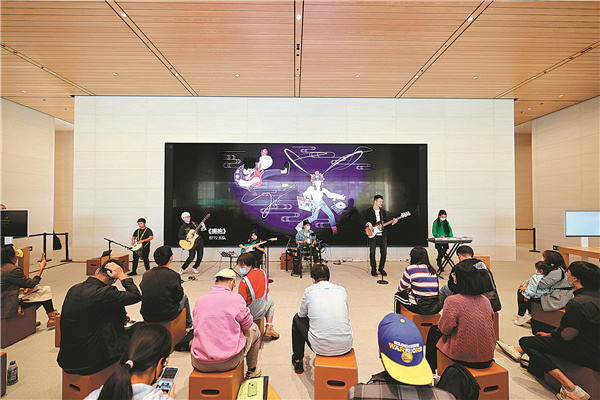

There's no lack of dreams and passion in Picun village, a migrant workers' community 30 kilometers northeast of the bustling center of Beijing, beyond the repetition of day-to-day life.
A group of people from the grassroots of society are trying hard to enrich the lives of both themselves and their neighbors because, as resident Fan Yusu once put it, there should be something other than earning bread to satisfy one's spirit.
Previously in 2017, Fan, 44-year-old then, a babysitter working in a brownstone area, rose to fame with her writing on domestic social media platforms.
"My life is an unbearable book, destiny has bound it awkwardly."
The middle-aged woman, not properly educated, divorced to escape domestic violence and has two daughters to bring up on her own. She started her memoir, in which she recounts her childhood in a village of Xiangyang, Hubei province, experiences of her own family and the one she's been working for, and life in Picun.
Fan's popularity illuminated other budding writers in the community to the possibilities therein. They even had college professors volunteer to give lessons on writing and discuss literature with them.
One of those who is gradually winning fans by following in Fan's footsteps is Hu Liushuai. Writing under the nickname of Xiaohai, he worked in factory from the age of 15 until he was 28 years old. He used to create poetry beside factory assembly lines, in revolt against the monotony and uncertainty of his career.
Born to a farmer's family in Central China's Henan province in 1987, he'd been working in factories, assembling radios or operating sewing machines, among other things, in Shenzhen and Guangzhou in Guangdong province, Suzhou and Nanjing in Jiangsu province and Shanghai for 13 years before arriving in Picun.
To kill time, he would try to recite hundreds of poems from the Tang (618-907) and Song (960-1279) dynasties, or glance over Chinese dictionaries. Later he tried to write modern poems, learning to honestly face up to and lay down his loneliness and achieve comfort from the process.
Tired of factory life, he's been living in Picun since 2016, and works for a nonprofit clothing store in the community, selling relatively cheap, secondhand clothes to migrant workers.